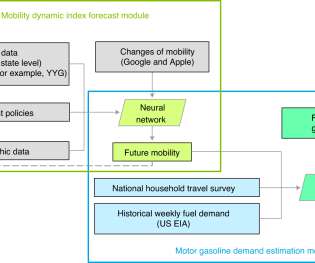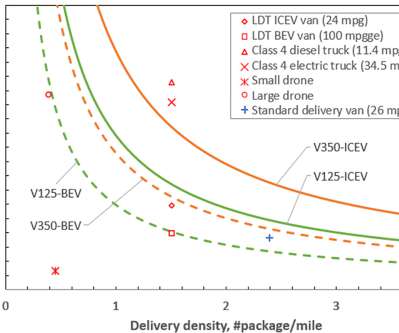Machine learning PODA model projects the impact of COVID-19 on US motor gasoline demand
Green Car Congress
JULY 18, 2020
The PODA model is a machine-learning-based model to project the US gasoline demand using COVID-19 pandemic data, government policies and demographic information. The Motor Gasoline Demand Estimation Module quantifies motor gasoline demands due to the changes in travel mobility. —Ou et al.






































Let's personalize your content